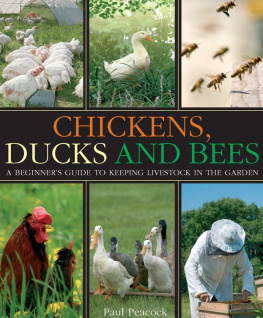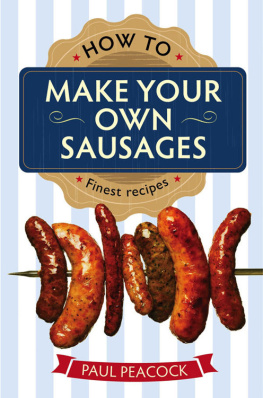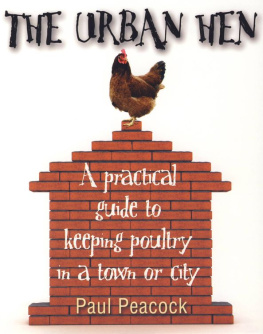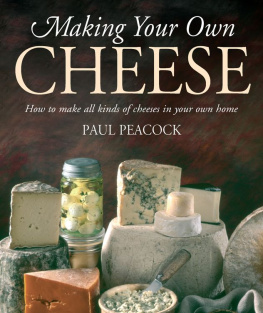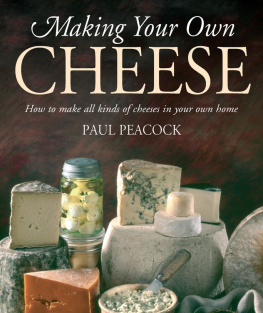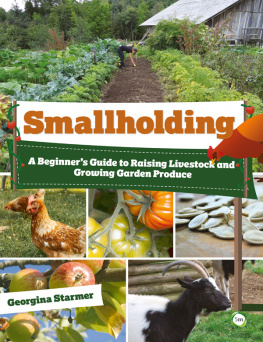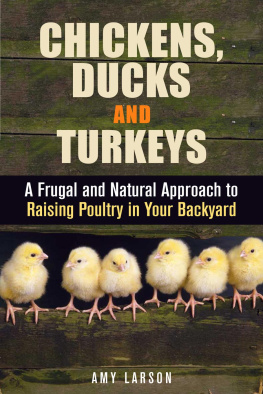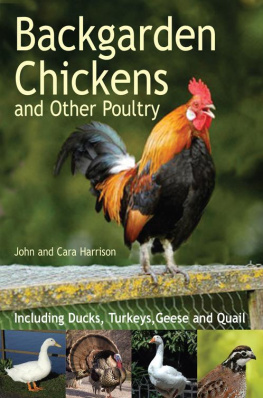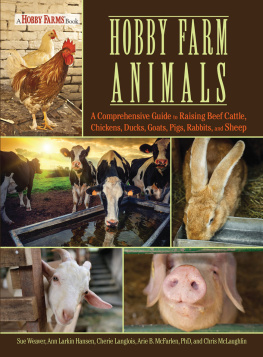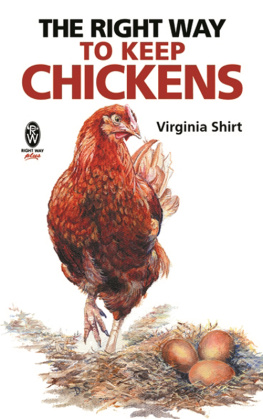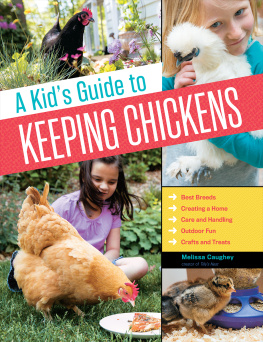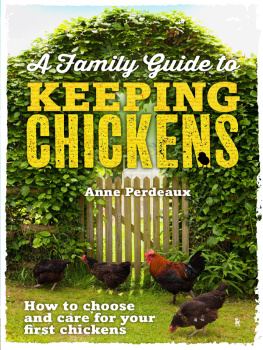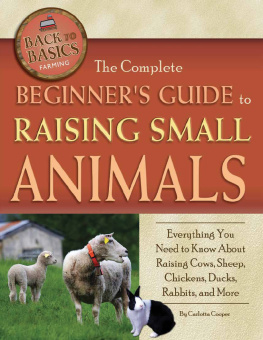At www.howto.co.uk you can engage in conversation with our authors all of whom have been there and done that in their specialist fields. You can get access to special offers and additional content but most importantly you will be able to engage with, and become a part of, a wide and growing community of people just like yourself.
At www.howto.co.uk youll be able to talk and share tips with people who have similar interests and are facing similar challenges in their lives. People who, just like you, have the desire to change their lives for the better be it through moving to a new country, starting a new business, growing their own vegetables, or writing a novel.
At www.howto.co.uk youll find the support and encouragement you need to help make your aspirations a reality.
How To Books strive to present authentic, inspiring, practical information in their books. Now, when you buy a title from How To Books, you get even more than just words on a page.
You choose a noble undertaking when you decide to grow some of your own food. I get excited about food and where it comes from; you might even say I am obsessed with it. There is something marvellous about growing something, caring for it, nurturing it and thence making something wonderful to eat or drink.
This was once the major occupation of every person in the country. The provision of food is rightly ingrained in our culture because it is the way we survive. In fact, more than survive prosper, enjoy, delight in life. It is as true for growing vegetables as it is for keeping livestock.
This book is about people. Its about you, although it is supposed to be about chickens, ducks and bees with a few extras thrown in, it is really about you and the relationship you have with your animals and of course, it is about the way in which you care for them.
Whether you are keeping animals as pets or as a way of providing your family with food, this regime of care is your responsibility and therefore this book is more about you than anyone else.
KEEPING ANIMALS FOR FOOD
The world is changing. Actually, it is stopping changing let me explain. Over two hundred years ago a process started in earnest to change the way people lived. Actually, this change originated a mile away from where I am sitting at my computer. Hargreaves Spinning Jenny made it possible for mill owners to create vast wealth out of the work of other men, and the Industrial Revolution began. From the turn of the eighteenth century, the movement of people from the land to the towns was huge. People were paid for their work in paper money, often with little value, and because they spent over half the day in the mill, they had no time for fundamental domestic tasks such as baking bread, growing vegetables, brewing beer. William Cobbett, an MP from Oldham, Lancashire, was so outraged by the change in the diet of ordinary people that he wrote a book, Cottage Economy, where the basics of food production were spelt out.
Eventually, Cobbett left the country because of his views and, as the Georgian period became the Victorian period, people whose great-grandparents were used to the best food in Europe were starving as wages fell time and again. The continuation of land reform that put all common land in the hands of the rich, and then the banks, made the translocation from the land for the ordinary person complete.
The improvement of peoples diet was accomplished by importing cheap food from the Empire, a methodology used by most European countries. Indeed, the UK has never been self-sufficient in food since the Industrial Revolution.
Studies in universities around the world have highlighted the unsustainable nature of the continued importing of food to feed the large cities of the world, and that famine in future generations will more likely occur in western cities than in what we traditionally call the Third World. Consequently there is a need for two things above all else in our modern society the need to grow food and the skills to cook it.
It is not wrong to want to keep animals for the food they provide, as well as their other benefits, such as keeping you in nutrient-rich soil to provide for your garden.
WHY TIMES ARE CHANGING
Because you are reading this book, you may be one of a growing number of people intent on living a simple lifestyle that of self-sufficiency. It has been associated with crankiness of hippy lifestyles, but has become much more mainstream in recent years. If the studies are accurate, one thing is certain: every family in the UK will have to grow at least some of their own food.
WHY CHICKENS, DUCKS AND BEES?
There is a simple answer to this: these are the animals you are allowed to keep in your gardens or on allotments without having to have a holding number issued by the Government. You can add to this rabbits, but they are outside the remit of this book. Certainly, goats and pigs, as well as sheep, need a holding number, and the reason for this is mostly down to animal welfare and the containment of diseases like foot and mouth.
This doesnt mean that you are completely free to keep chickens, ducks or bees. Your house deeds, the local authority or the local parish byelaws might forbid the keeping of animals of any kind at your address.
KEEPING ANIMALS WONT SAVE YOU MONEY
Let me make this clear. Keeping animals will not, ever, save you money. It might bring you out (or nearly out) of the money economy, but it wont actually make life cheaper, except in the provision of honey, which at the moment is so expensive that a single hive might earn you 300 in a good year and nothing at all in a bad one.
You will always be able to buy eggs more cheaply than you can produce them, and you will always be able to purchase chicken meat for less than you are able to produce it, for the time being at least.
The truth is that the chickens themselves have provided cheap eggs and meat by being forced into intolerable conditions in factory farms to provide you and me with cheap meat and eggs.
THREE GREAT REASONS FOR KEEPING ANIMALS
There are three good reasons for keeping livestock in your garden. First, you get great food eggs are so much more wonderful, for example, when cooked within minutes of coming out of a hen than the month-old examples you buy from the supermarkets.
Second, livestock is wonderful as a part of an overall strategy for being more self-sufficient . Ducks in particular vacuum up slugs and snails, bees provide a crop from the whole of your neighbourhood, and chickens provide mountains of manure to feed your vegetables.
Third, they are great fun. Only when you have studied life in the beehive can you find real insights into human behaviour. Your family benefits not only from healthy, wonderful, fresh, pesticide-free food, but they will have an insight into the natural world so frequently missed in modern life.
TEACUP PHILOSOPHY
It is difficult not to become something of a philosopher when you keep livestock of any kind. If you want to become proficient at the job, you have to spend time watching your animals, and consequently you will see, or maybe imagine, that the animals in your charge will have philosophies of their own. Whether this is pure imagination or not doesnt really matter, because your livestock will continue to live in their way regardless of what you or I think about them.
In essence, keeping animals for food says more about you as a human being than it does about a chicken being a chicken. She will cluck away, demanding food and clean water, somewhere dry and airy to sleep and a place to lay her eggs. These things never change, but you will notice some amazing transformations.

